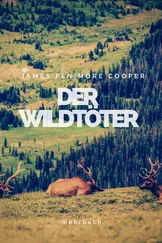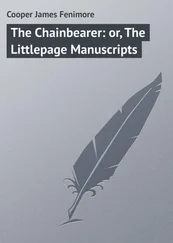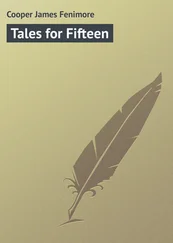Pathfinder
or, the inland sea
James Fenimore Cooper
The plan of this tale suggested itself to the writer many years since, though the details are altogether of recent invention. The idea of associating seamen and savages in incidents that might be supposed characteristic of the Great Lakes having been mentioned to a Publisher, the latter obtained something like a pledge from the Author to carry out the design at some future day, which pledge is now tardily and imperfectly redeemed.
The reader may recognize an old friend under new circumstances in the principal character of this legend. If the exhibition made of this old acquaintance, in the novel circumstances in which he now appears, should be found not to lessen his favor with the Public, it will be a source of extreme gratification to the writer, since he has an interest in the individual in question that falls little short of reality. It is not an easy task, however, to introduce the same character in four separate works, and to maintain the peculiarities that are indispensable to identity, without incurring a risk of fatiguing the reader with sameness; and the present experiment has been so long delayed quite as much from doubts of its success as from any other cause. In this, as in every other undertaking, it must be the "end" that will "crown the work."
The Indian character has so little variety, that it has been my object to avoid dwelling on it too much on the present occasion; its association with the sailor, too, it is feared, will be found to have more novelty than interest.
It may strike the novice as an anachronism to place vessels on the Ontario in the middle of the eighteenth century; but in this particular facts will fully bear out all the license of the fiction. Although the precise vessels mentioned in these pages may never have existed on that water or anywhere else, others so nearly resembling them are known to have navigated that inland sea, even at a period much earlier than the one just mentioned, as to form a sufficient authority for their introduction into a work of fiction. It is a fact not generally remembered, however well known it may be, that there are isolated spots along the line of the great lakes that date as settlements as far back as many of the older American towns, and which were the seats of a species of civilization long before the greater portion of even the older States was rescued from the wilderness.
Ontario in our own times has been the scene of important naval evolutions. Fleets have manoeuvered on those waters, which, half a century ago, were as deserted as waters well can be; and the day is not distant when the whole of that vast range of lakes will become the seat of empire, and fraught with all the interests of human society. A passing glimpse, even though it be in a work of fiction, of what that vast region so lately was, may help to make up the sum of knowledge by which alone a just appreciation can be formed of the wonderful means by which Providence is clearing the way for the advancement of civilization across the whole American continent.
The Turf Shall be My Fragrant Shrine;
My Temple, Lord! That Arch of Thine;
My Censer's Breath the Mountain Airs,
and Silent Thoughts My Only Prayers.
Moore
The sublimity connected with vastness is familiar to every eye. The most abstruse, the most far–reaching, perhaps the most chastened of the poet's thoughts, crowd on the imagination as he gazes into the depths of the illimitable void. The expanse of the ocean is seldom seen by the novice with indifference; and the mind, even in the obscurity of night, finds a parallel to that grandeur, which seems inseparable from images that the senses cannot compass. With feelings akin to this admiration and awe—the offspring of sublimity—were the different characters with which the action of this tale must open, gazing on the scene before them. Four persons in all,—two of each sex,—they had managed to ascend a pile of trees, that had been uptorn by a tempest, to catch a view of the objects that surrounded them. It is still the practice of the country to call these spots wind–rows. By letting in the light of heaven upon the dark and damp recesses of the wood, they form a sort of oases in the solemn obscurity of the virgin forests of America. The particular wind–row of which we are writing lay on the brow of a gentle acclivity; and, though small, it had opened the way for an extensive view to those who might occupy its upper margin, a rare occurrence to the traveller in the woods. Philosophy has not yet determined the nature of the power that so often lays desolate spots of this description; some ascribing it to the whirlwinds which produce waterspouts on the ocean, while others again impute it to sudden and violent passages of streams of the electric fluid; but the effects in the woods are familiar to all. On the upper margin of the opening, the viewless influence had piled tree on tree, in such a manner as had not only enabled the two males of the party to ascend to an elevation of some thirty feet above the level of the earth, but, with a little care and encouragement, to induce their more timid companions to accompany them. The vast trunks which had been broken and driven by the force of the gust lay blended like jack–straws; while their branches, still exhaling the fragrance of withering leaves, were interlaced in a manner to afford sufficient support to the hands. One tree had been completely uprooted, and its lower end, filled with earth, had been cast uppermost, in a way to supply a sort of staging for the four adventurers, when they had gained the desired distance from the ground.
The reader is to anticipate none of the appliances of people of condition in the description of the personal appearances of the group in question. They were all wayfarers in the wilderness; and had they not been, neither their previous habits, nor their actual social positions, would have accustomed them to many of the luxuries of rank. Two of the party, indeed, a male and female, belonged to the native owners of the soil, being Indians of the well–known tribe of the Tuscaroras; while their companions were—a man, who bore about him the peculiarities of one who had passed his days on the ocean, and was, too, in a station little, if any, above that of a common mariner; and his female associate, who was a maiden of a class in no great degree superior to his own; though her youth, sweetness and countenance, and a modest, but spirited mien, lent that character of intellect and refinement which adds so much to the charm of beauty in the sex. On the present occasion, her full blue eye reflected the feeling of sublimity that the scene excited, and her pleasant face was beaming with the pensive expression with which all deep emotions, even though they bring the most grateful pleasure, shadow the countenances of the ingenuous and thoughtful.
And truly the scene was of a nature deeply to impress the imagination of the beholder. Towards the west, in which direction the faces of the party were turned, the eye ranged over an ocean of leaves, glorious and rich in the varied and lively verdure of a generous vegetation, and shaded by the luxuriant tints which belong to the forty–second degree of latitude. The elm with its graceful and weeping top, the rich varieties of the maple, most of the noble oaks of the American forest, with the broad–leaved linden known in the parlance of the country as the basswood, mingled their uppermost branches, forming one broad and seemingly interminable carpet of foliage which stretched away towards the setting sun, until it bounded the horizon, by blending with the clouds, as the waves and the sky meet at the base of the vault of heaven. Here and there, by some accident of the tempests, or by a caprice of nature, a trifling opening among these giant members of the forest permitted an inferior tree to struggle upward toward the light, and to lift its modest head nearly to a level with the surrounding surface of verdure. Of this class were the birch, a tree of some account in regions less favored, the quivering aspen, various generous nut–woods, and divers others which resembled the ignoble and vulgar, thrown by circumstances into the presence of the stately and great. Here and there, too, the tall straight trunk of the pine pierced the vast field, rising high above it, like some grand monument reared by art on a plain of leaves.
Читать дальше












